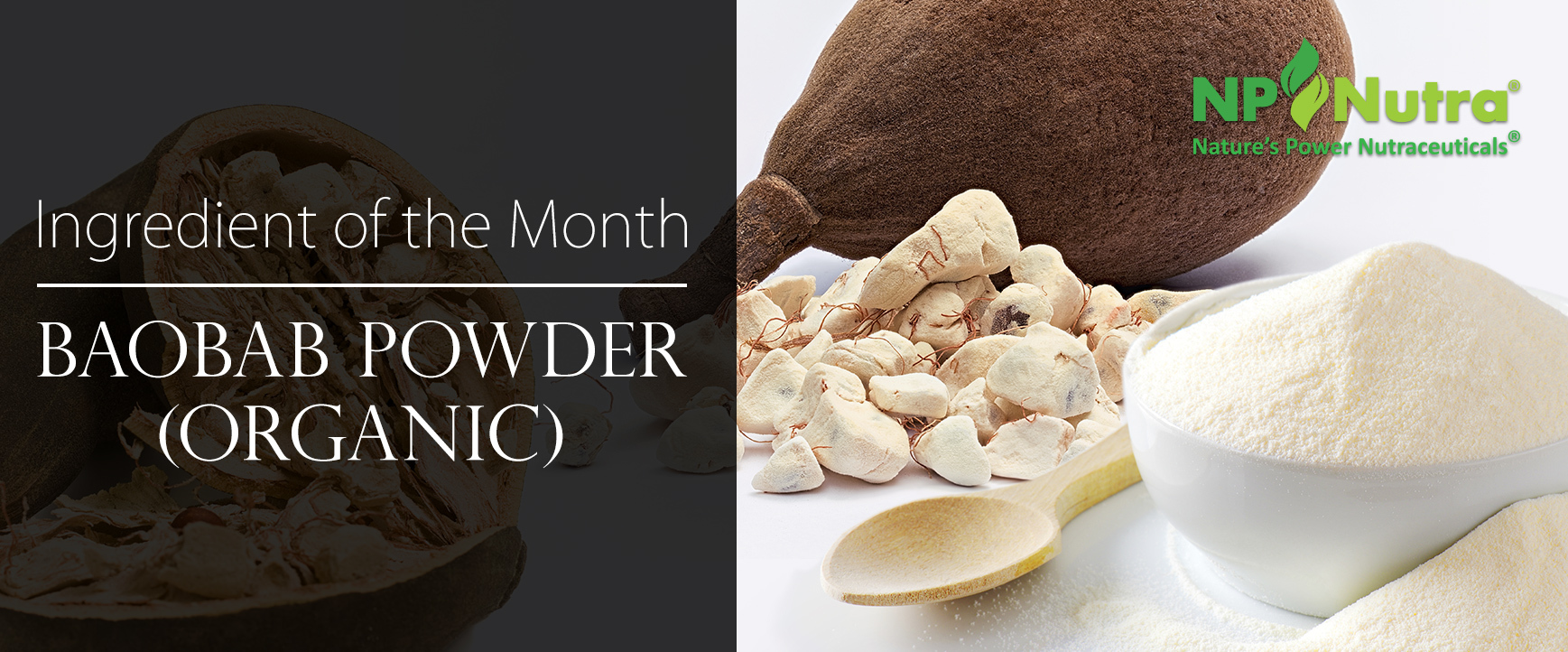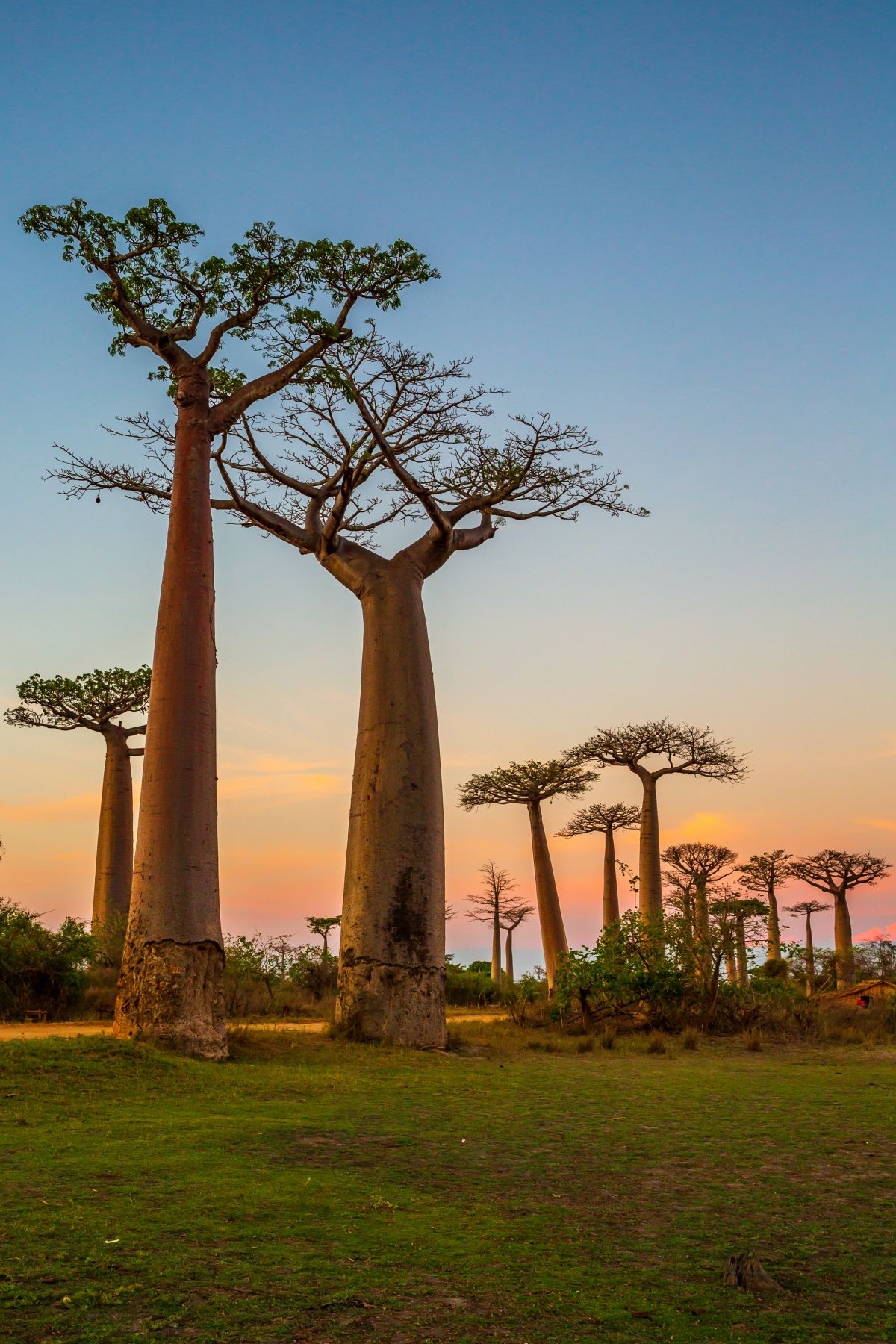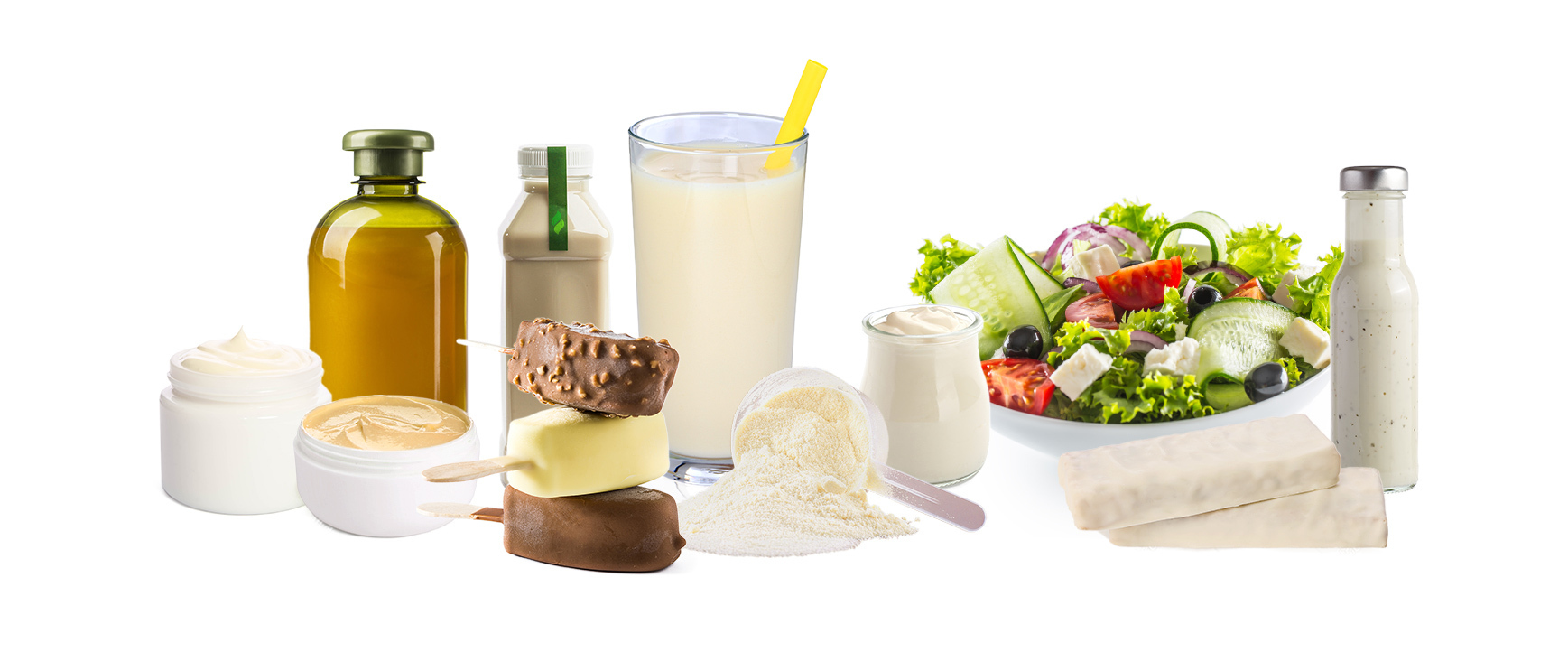
Baobab, ‘The Tree of Life’
Native to Africa, baobab trees grow in dry, hot areas. They don’t begin fruiting until roughly 50-75 years of age and many of the trees live to be over 2,000 years old. The name ‘baobab’ is derived from Arabic and means “father of many seeds”. It’s also known as monkey bread tree, cream of tartar tree, upside down tree, and in Africa it’s known as the ‘Tree of Life’ because all parts of the tree are used for food, drink and other necessities. The green-brown fruits look like small gourds, have a hard shell and contain a soft, creamy white pulp that is slightly powdery and has a tart, unique, fruity flavor. The fruit pulp, which naturally dehydrates inside the shell, is nutritious, which is the main reason for its increasing popularity worldwide, with the global baobab market forecast to grow at a 6.11% CAGR from 2020-2025.1
Nutrients
Nutrient-dense baobab fruits are rich in prebiotic dietary fiber (including pectin), potassium and antioxidant phytonutrients (phenolics and bioflavonoids), high in vitamin C, calcium and magnesium, and contain a wide variety of vitamins and minerals. The bioflavonoids present in the fruits are necessary for the absorption of vitamin C in the body.*

Sustainability
Our organic baobab powder is made from fruits wild harvested by local cooperatives in rural communities in southern Africa, who harvest the fruits amongst the savannah forests in which they live, using sustainable methods. Production of baobab fruit powder uses only the fruit, and the trees remain undamaged. The women do the organizing and the harvesting, and the money goes directly to the women in these rural communities, so they can provide the staples for their families - food, school supplies for children, etc. The majority of the poorest people live in the driest parts of Africa, which are the areas where baobab grows. So an increasing demand for baobab products is incredibly valuable to people living in these areas, while also creating an atmosphere of stewardship for the baobab trees, a key species of the African savannah ecosystem. A healthy population of baobab trees provides; a habitat for animals and birds, a large carbon sink, a natural water storage system during the rainy season, and critical root structure for preserving topsoil, a key part of the local carbon and organic matter cycle.
Product Specifications
Baobab Powder (organic)
Botanical Source: Adansonia digitata
Ingredients: 100% organic baobab fruit
Country of Origin: South Africa
Drying Method: Raw (dried naturally)
Color: Beige to cream powder
Solubility: Partly soluble
Certifications: Organic, Kosher, Food grade
Produced in: FSSC 22000 certified facility
Applications
Functional Foods & Beverages, Dietary Supplements, Cosmetics and Skincare
Our organic baobab powder, with its unique tart and fruity flavor and smooth texture when mixed in liquid, is ideal in foods, beverages and personal care products. It can be used in a wide variety of applications including; ready-to-drink beverages, powder formulations (meal replacement, greens, superfoods, hydration and sports beverages), desserts, yoghurts, ice creams, baked goods, snacks, salad dressings, dietary supplements, multivitamin gummies, cosmetics, skincare, shampoos and conditioners.
Adding our baobab fruit powder to your food and beverage formulations is an ideal way to boost their prebiotic fiber content!

Contact us for a free sample and further product information.
Reference:
1 https://www.mordorintelligence.com/industry-reports/baobab-market





